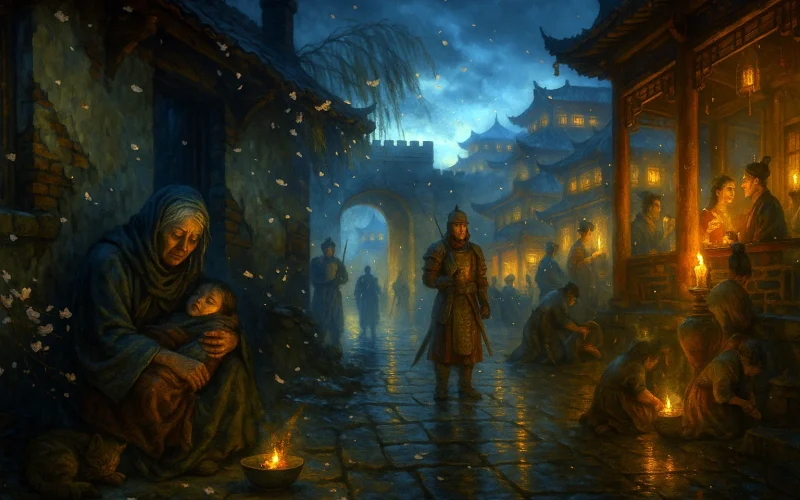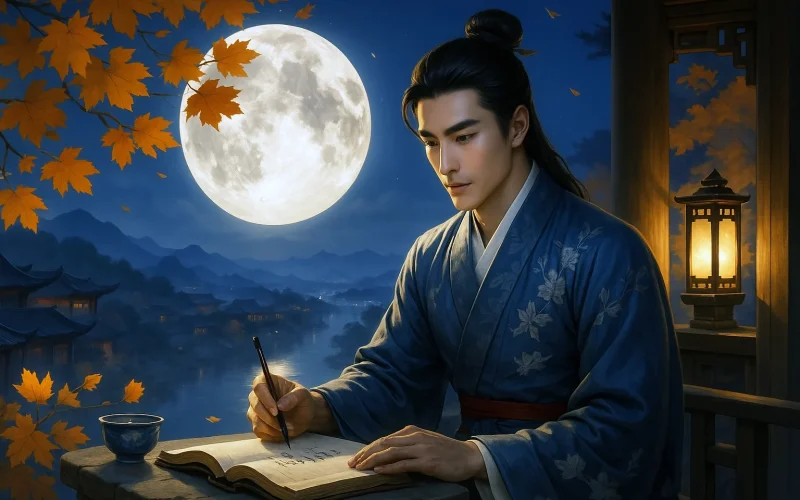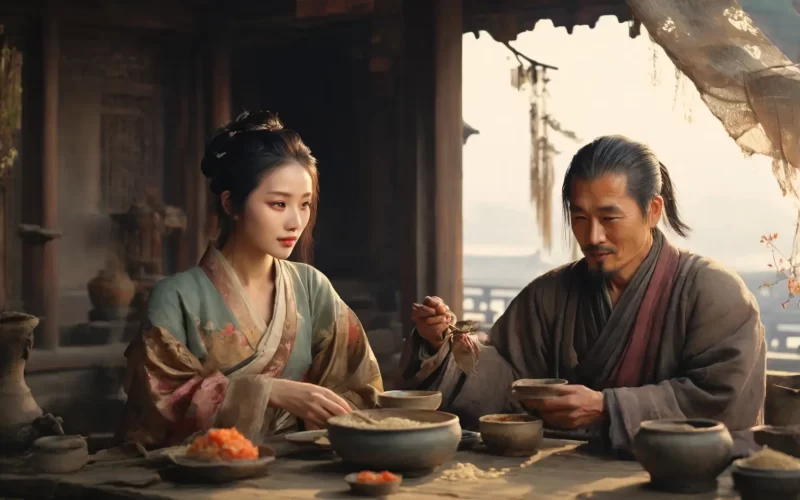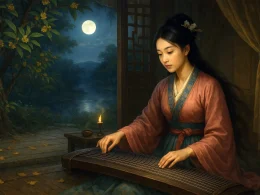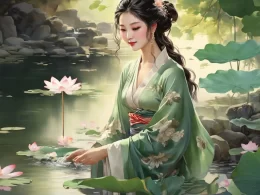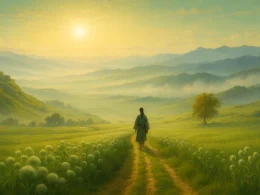Petals of spring fly all through the city From the wind in the willows of the Imperial River. And at dusk, from the palace, candles are given out To light first the mansions of the Five Great Lords.
Original Poem
「寒食」
韩翃
春城无处不飞花, 寒食东风御柳斜。
日暮汉宫传蜡烛,轻烟散入五侯家。
Interpretation
This poem was composed during the Dali era of Emperor Daizong of Tang (766–779 AD), a period marked by the dominance of regional warlords, eunuch control, and escalating social conflicts. Han Hong uses the theme of the Cold Food Festival to subtly critique the privileges enjoyed by court favorites, revealing the social injustices of the time.
First Couplet: “春城无处不飞花,寒食东风御柳斜。”
Chūn chéng wú chù bù fēi huā hán shí dōng fēng yù liǔ xié.
In the spring city, flowers flutter everywhere; the east wind of the Cold Food Festival sways the imperial willows.
The opening couplet begins with a vivid depiction of spring in Chang'an, capturing the bustling scene of falling flowers and swaying willows. This imagery not only sets the poetic tone for the Cold Food Festival but also contrasts with the later depiction of the privileges enjoyed by the court.
Second Couplet: “日暮汉宫传蜡烛,轻烟散入五侯家。”
Rì mù hàn gōng chuán là zhú qīng yān sàn rù wǔ hóu jiā.
At dusk, candles are passed through the Han palace; wisps of smoke drift into the homes of the five noble families.
These lines describe the emperor's special gift of candles to his favored courtiers. Despite the Cold Food Festival's tradition of banning fire, the court and noble families enjoy this exception, a detail that exposes social inequality and carries a subtle yet pointed critique.
Overall Appreciation
The poem employs a technique of transitioning from scenery to emotion, using the imagery of the Cold Food Festival to convey a deeper critique. The first half depicts the spring scenery, with willow catkins and falling flowers creating a bright yet slightly melancholic atmosphere. The second half shifts to the scene of candles being gifted to the noble families, highlighting the privileged class's disregard for the festival's禁令. The use of "dusk" and "wisps of smoke" subtly hints at the darkness and emptiness of political corruption, with the critique being both含蓄 and profound.
Writing Characteristics
- Vivid Contrasts, Nuanced Critique: The ethereal imagery of "flowers fluttering everywhere in the spring city" contrasts sharply with the reality of the "five noble families" enjoying exclusive privileges, creating a striking and thought-provoking juxtaposition.
- Natural Use of Allusion, Deep Meaning: The phrase "Han palace at dusk" cleverly alludes to the Tang court through a Han dynasty reference, using the past to critique the present with a masterful touch.
- Vivid Details, Strong Imagery: The word "passed" captures the tense atmosphere of the court distributing candles, while "drift" vividly portrays the smoke entering the noble households, creating a powerful visual scene.
Insights
Set against the backdrop of the Cold Food Festival's spring scenery, this poem ostensibly depicts the beauty of spring and falling flowers. However, it subtly critiques the social injustices and the extravagance of the privileged class through the exception to the "fire ban" tradition. With a delicate and refined touch, the poet expresses his criticism of corrupt politics and his sympathy for the common people, reminding us to remain vigilant against the excesses and inequalities of the privileged class. The poem reflects profound social concern and a call for justice.
Poem translator
Kiang Kanghu
About the Poet
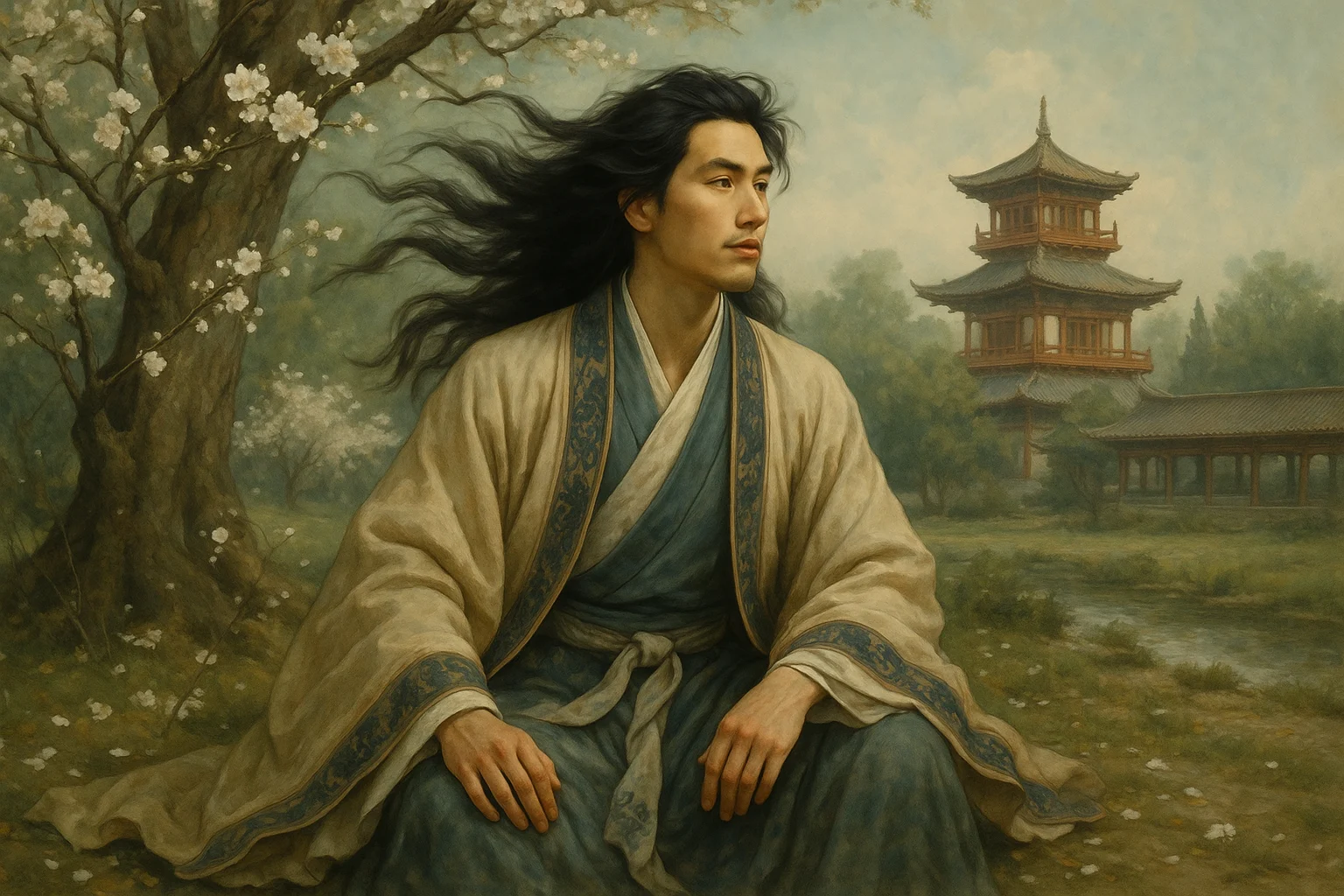
Han Hong(韩翃), a native of Nanyang, Henan, was one of the "Ten Literary Masters of the Dali era" (大历十才子). He was renowned for his poetry, particularly farewell and parting verses, which gained significant acclaim during his time. The Complete Tang Poems (《全唐诗》) preserves three volumes of his works.





